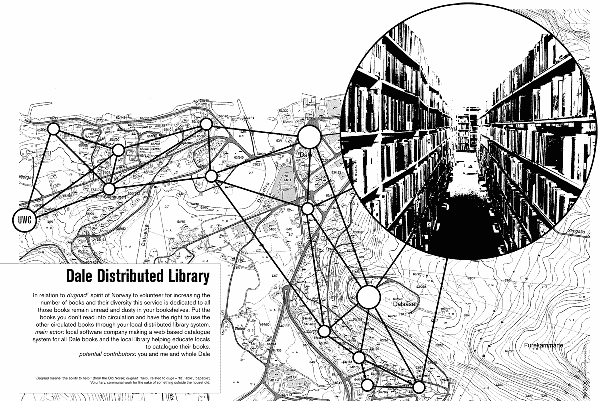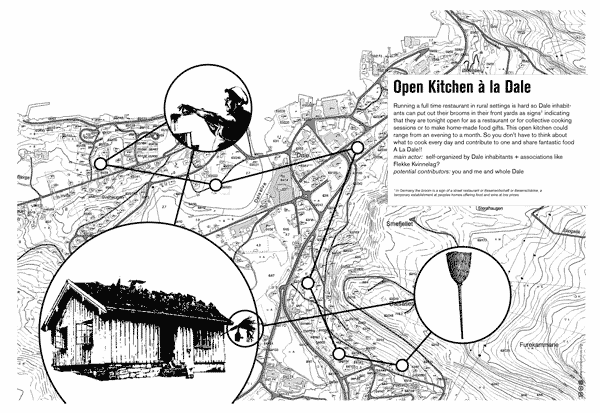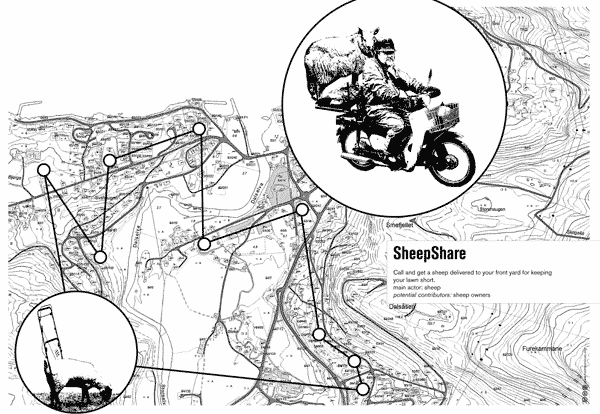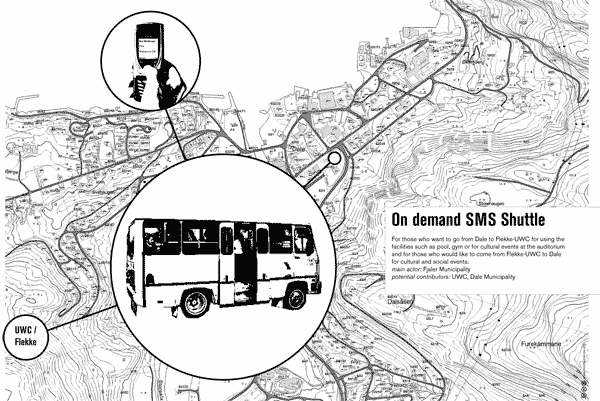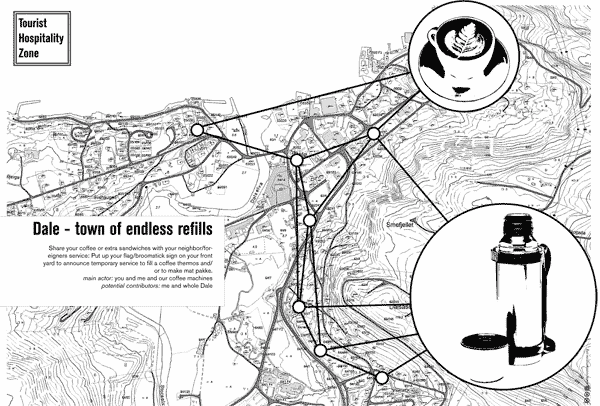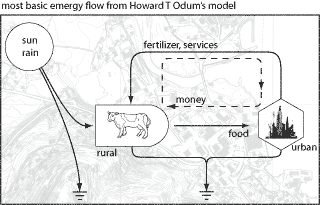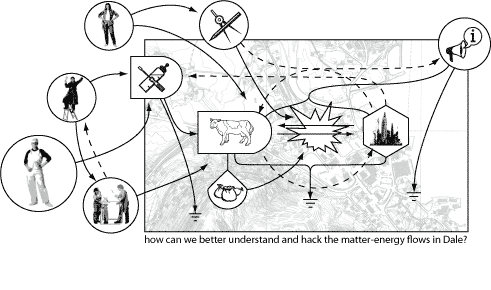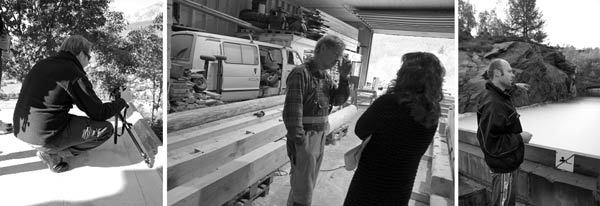
>>>Epicenter | Periphery
Exploration of rural conditions of creativity and social change - how does energies flow in a community and how can small interventions change the dynamics of rural services?
Dale i Sunnfjord, Norway,
Research project 20 September - 3 October 2008
by Roomservices and Nordic Artist Center Dale, NKD (with special thanks to Elisabet Gunnarsdottir)
Scenarios A4 posters downoad [pdf 2.5 mb]
Methodology booklet in A5 download [pdf 5 mb]
Epicenter Periphery is a system ecological research project trying to redefine the parameters by which we understand the relation between urban and rural, middle and margin, epicenter and periphery. By trying to map and understand the dynamics of an off-center location in a new way, different forms of interventions can be made to plug into intensify local flows and energy sources, vitalizing crucial lines and nodes to trigger further local change.
As periphery being defined and redefined through the constitution of the center, its identity is destined to be framed from a series of limitations. These are usually seen as heavy traditions, conventional thinking, non-dynamic environments, homogeneous and bordered spaces. Epicenter is, on the contrary, where everything seem to happen and where all nodes meet and in a state of flow. It is the attractor point and magnet for all different sectors, where all feed from the synergies of a critical mass; people, ideas, money, culture and energy. But is it really so? What are the connections between center and periphery, and how can these interfaces be further explored and renegotiated? Which are the small scale, local tactics that create vibrant collisions, multiplies input into rural amplifiers and centripetal creative cycles for massing development densities?
Epicenter | Periphery aims to open up a hands-on discussion platform around the survival strategies of the periphery, and to tune, amplify, and reconnect them into emergent processes for social change.
The project consisted of a two week research and development period by roomservices and invited experts, Karl Palmas, Tina Giannopoulos and Anze Zadel, where parameters and mapping techniques were explored to reveal the local energy flows and hidden assets of Dale. The project also practically investigated how interventions in these mapped flows can change the conditions of the rural, local, and periphery. The aim of this type of research is to better understand how small scale interventions can reveal, mobilize and amplify hidden structures and currents in a small peripheral community.
These small change interventions can trigger multiply existing forces and motivate social orchestration for pooling and intersecting the existing flows in a community and embrace the existing creativity rather than feeling a need to "fly in" new resources.Tools for such interventions can be anything from local currencies, innovation protocols, open source interfaces, architectural practices, intervention processes, social entrepreneurship, incubators and NGO initiatives, combined with relations to locality issues and social practice within contemporary art.
>>> Epicenter | Periphery Issues for research
Three main problems of Dale were chosen for the workshop:
Flows of energy: How do we understand and map with better accuracy and imagination what is happening in-between people, institutions, and events in a small milieu, and how can we practically tap into these flows to intensify them? What can be the interventions for amplifying local initiatives and energy sources?
Lines of energy: How can we amplify the channels of communication and organization of local synergies? We usually think that a new event, building, community center, or festival will trigger larger movements by converging existing lines and inviting outside ones, but how can we bend everyday small flows and their communication channels to connect into larger creative turbulences?
Nodes of energy: What are the places through which the local energies flow, and how do we locate them? What can be done structurally and architecturally to make these functions better through small scale interventions?
>>> The Research focused on network analysis and flow charts to map the dynamics of Dale. As a point of departure roomservices used the ideas of systems ecologist Howard T Odum to draw the connections and interactions between local actors, services, nodes and resources.
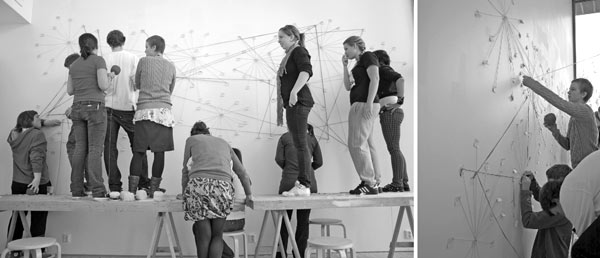
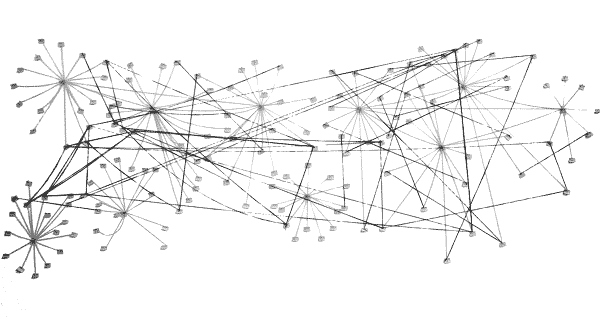
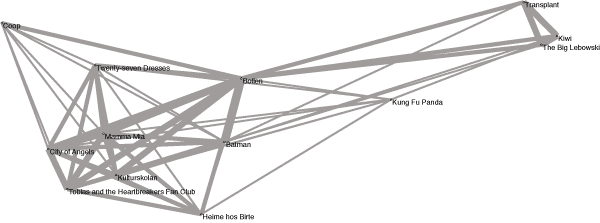
Students from the United World College in Flekke and in Dale created a network sociogram (above). This displayed the connections between places, services and people. This was analyzed through a network analysis software, Pajek, to create a mathematical representation of the data collected from the collaborative version.
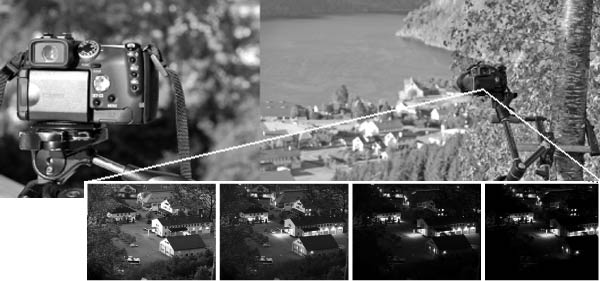
Stop motion photography was used to capture longer sequences of movements and activities in Dale, several cameras were mounted to create a series of short movies. These acted as points of departure in discussions on the veryday life in Dale.
Through interviews, observations and fieldwork the local services and resources were mapped and arranged in an emergy system. This map formed the basis for the scenario discussions on how small interventions can amplify local inititives and creative services.
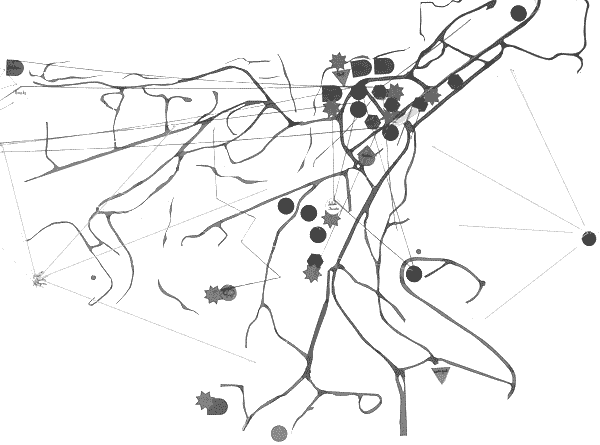
All data was collected on a hybrid map of the Dale "generators" where activities, nodes, community spaces, and services were traced. The sketched emergy map of the networked system ecologies of Dale (above).

>>> The fieldwork and scenarios were presented at the Nordic Artists Centre and later exhibited at the local library and offered as a community discussion meeting point.
Below: some scenarios for new spirited services for Dale
